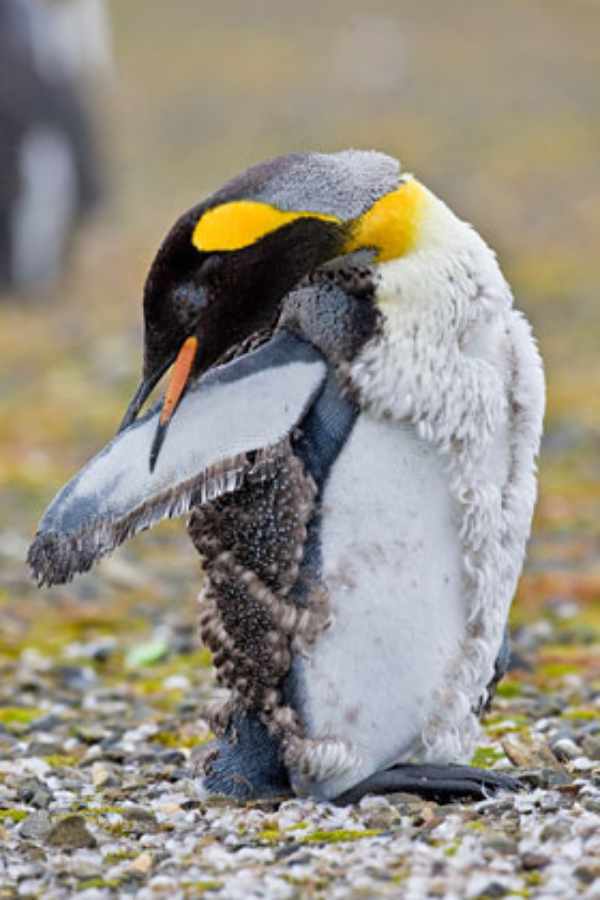When I was a child, I loved watching Happy Feet, a movie about penguins and their adventures. The film created a warm and inviting atmosphere of friendship and camaraderie between penguins and other animals. However, as I grew older, I began to wonder if Happy Feet accurately depicted the behaviour of penguins. Are penguins truly amicable creatures?
Table of Contents
In reality, most penguins are friendly to humans. Since they don’t have any predators on land, penguins feel comfortable walking around and approaching human beings. But don’t be fooled – penguins are still wild animals, and it is not recommended to try to pet them. While they may be friendly, they can still attack humans unpredictably.
So while penguins may not be as cuddly as they seem in Happy Feet, they are still fascinating and unique creatures that are most definitely worth getting to know.
Are Penguins Friendly?

Some individuals interpret the inquisitive nature of penguins as a sign of friendliness. These remarkable flightless birds exhibit fearlessness when approaching humans. This fearlessness stems from the absence of natural land predators in their habitats. When penguins are accustomed to human presence, they show no reservations about getting close to you.
In Antarctica, there are organized tours that provide the opportunity for people to observe penguins up close. However, it is crucial to adhere to certain guidelines when in the presence of these fascinating creatures.
While penguins may seemingly enjoy your company, it is important to remember that touching them is not permissible. Penguins are easily startled, and any sudden movements or loud noises can frighten them. They may swiftly manoeuvre away from you, evading any contact.
Furthermore, it is essential to understand that penguins may not immediately approach you. They require time to adjust to the presence of humans. While they lack a natural fear of humans, they still exercise caution. If a penguin does approach, it is advised not to hold or attempt to grab it.
In most cases, touching penguins in the wild is strictly prohibited. However, certain sanctuaries may allow supervised interactions, such as petting penguins under controlled conditions. It is crucial to respect the regulations in place to ensure the well-being and safety of both humans and these extraordinary creatures.
Do Penguins Like Humans?
Penguins exhibit a lack of fear towards humans, although it does not necessarily indicate a fondness for human presence. Rather, these remarkable flightless birds are naturally curious about their surroundings.
Once penguins become comfortable in your presence, they may start to approach you, provided you refrain from startling them with sudden movements. It is crucial to avoid making loud noises, as penguins are easily frightened by loud and abrupt sounds.
While the temptation to pet penguins may arise if they come near, it is highly discouraged due to their status as wild animals. It is important to respect their natural behaviour and refrain from carrying or grabbing them, as such actions can be misinterpreted and may lead to potential aggression.
However, in protected sanctuaries under the supervision of licensed experts, there may be opportunities to pet penguins. Nevertheless, it is essential to recognize that penguins do not respond to touch in the same way as domesticated pets. When touched, they perceive it as if another penguin is preening to them, a common behaviour within penguin society.
Penguins are highly social creatures, enjoying snuggling and cuddling with fellow penguins for warmth. However, there is no indication or evidence to suggest that they seek to hug or embrace humans.
Regarding affection, penguins form lifelong monogamous partnerships. They display remarkable dedication to their chosen mates, refraining from seeking another partner even after the loss of their previous mate.
Do Penguins Remember Humans?
Have you ever thought about whether or not penguins can recognize human faces? Well, the answer is yes! Penguins are highly intelligent birds that have the ability to remember particular human faces for years. They can even recognize a friend or enemy, which helps with their survival. A 2012 research publication by Avian Biology Research shows that birds, in general, can recognize familiar human faces and voices.
However, most penguin species, like Adelie and Chinstrap, have remarkable memories. It is interesting to note that their impressive memories also enable them to navigate through terrains and find the same nest spot. Additionally, penguins memorize the faces of other penguins, which plays a vital role in building their social relationships.
FAQs
Are Penguins Friendly to Each Other?
Penguins are not only intelligent but also incredibly friendly creatures. Living in harsh and frigid environments, they understand the importance of sticking together. To maximize their body heat, these sociable animals huddle closely and constantly rotate so that everyone gets a chance to warm up.
What’s even more remarkable is that penguins remember each other’s faces by matching physical appearance and vocal calls. Additionally, the bonds between penguins aren’t limited to species. Emperor and Adelie penguins have been known to coexist and even help each other out.
How do Penguins Show Friendship?
Although penguins are social creatures, they tend to act indifferent towards most other penguins. While they are friendly, it does not mean they form lifelong friendships. Instead, these flightless birds spend more of their time finding a mate than building relationships with their peers. Penguins are known to have one friend for life, and that is their mating partner.
During courtship, the male penguin will offer the female penguin the smoothest pebble he can find. If she likes it, she will place the pebble on her nest. Then they work together, building up the nest with more pebbles and creating a safe place to raise their young. In the world of penguins, it seems that romance takes precedence over friendships.
Do Penguins Have Feelings?
It’s not uncommon for people to assume that penguins are emotionless creatures, simply waddling about in their tuxedos and living their lives in a robotic manner. However, this couldn’t be further from the truth. Penguins not only have emotions, but they also have a unique way to communicate them–through vocal calls.
These birds can use up to six distinctive vocalizations to express their feelings, ranging from loneliness to hunger to irritation. Additionally, penguins aren’t shy about expressing their affection. The famous pebble offering proposal of African penguins is just one example of their courtship ritual. Emperor penguins, on the other hand, serenade and bow to their partners to show their love.
Final Words
Penguins have a well-deserved reputation for being friendly creatures, and this is largely due to their sociable nature. Living in large colonies, they need to be social to survive in their region. As they lack natural land predators, they are not afraid of humans, but it may take a little time for them to warm up to us. However, it’s essential to remember that penguins don’t like sudden movements or loud noises and may be startled if they’re not careful.
Despite this, these sociable birds can be incredibly affectionate and enjoy preening or being petted. And if their courtship rituals are anything to go by, the nonchalance is ultimately just for show – they are romantic creatures, who spend time and effort wooing their partners.
Reference:
- https://phillipislandtour.com.au/blog/can-we-touch-penguins/
- https://www.pbs.org/wnet/nature/the-world-of-penguins-protecting-penguins/1913/
- https://iaato.org/blog/dont-hug-the-penguins-and-other-rules-in-antarctica-3/

Jeevan Kodiyan
An animal enthusiast with an interest in zoology, studying the behavior and activities of animals in the wild habitat. I work on research projects related to species conservation and endangered species protection. I also leverage zoology to become an educator, educating others about the importance of protecting our natural environment and the beauty of animals in their natural habitats.









